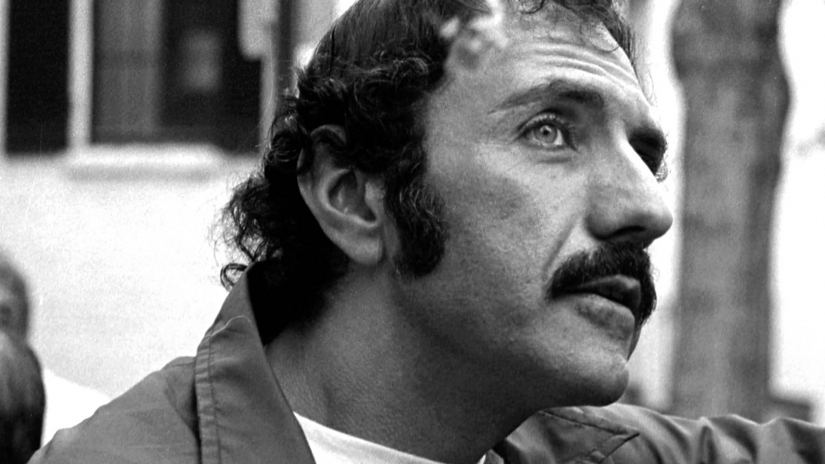There Were Angels Too, by Reed Lackey
15 Jan
“The river flowed quiet again, reaching toward a gentler shore.” – William Peter Blatty, from The Exorcist
There are stories which are so affecting, so deeply impactful, that they become the standard-bearer for their genre – or for stories in general. To the horror fan, one of the unrivaled masterpiece standard bearers is The Exorcist. The author of that novel, and of the screenplay which became the film, has passed away.
William Peter Blatty began his career in comedy. Many who know him for The Exorcist may be surprised to discover that he also co-wrote the screenplay for A Shot in the Dark, perhaps the best of the Pink Panther comedy series. But it is, without a doubt, his story of the demonic possession of a young Georgetown girl (and of the priests who wage war for her soul) that landmarks his legacy. The film is more than 40 years old, yet on nearly every collective list of the most terrifying films ever made, it remains at the top.
I’ve written and spoken extensively before that The Exorcist is my favorite film. It likely always will be. But I have not, to the same degree, expressed how beautifully powerful I find Blatty’s original novel to be. The film faithfully represents the major beats of the novel, and a majority of its profundity. However, given the breathing room that a novel has to explore the internal life of its characters, and to more specifically map out their thoughts and perspectives, there are treasures in Blatty’s novel that no film version has ever been able to capture.
People understandably concentrate on the film’s horrors (of which there are a multitude), but the elements which most frequently resonated with me were the hopes. For the story itself is rooted in hope, stubborn futile hope, which stands up to the face of unspeakable and unimaginable evil and declares, “I cast you out!” We imagine that such moments require tremendous courage and faith: qualities which most of us might say we do not fully possess.
But William Peter Blatty populated his story not merely with champions of truth wielding unwavering belief regardless of the circumstances. Sure, Father Merrin (the older one) is a giant of the Christian faith, but the story, ultimately, is really about Father Karras. A moment early in the novel describes “Against all reason, against all knowledge, he prayed there was someone to hear his prayer. He did not think so.” By bravely illustrating the doubt present in the heart of someone who is supposed to represent confident faith, Blatty made the story not just about these people and this problem. He made it about all of us.
I think everyone wants to believe in something good. Even to those who say there is no God, they hold standards of their own understanding for what is good and pure and true. But we do have doubts, each and all of us. When those doubts assail us, we turn to what is familiar and to the place where we misplaced our hopes. “Once Karras met God in this sight. Long ago. Like a lover forsaken, he still kept the rendezvous.” Karras is described as a man of both strength and pain. When the little girl’s mother finally agrees to trust him with her daughter’s fate, Blatty tells us, “She trusted the pain.”
Because whether we admit or accept it, the greatest faith is often born from pain and doubt. There is a sentiment expressed in an old Rich Mullins song which says that sometimes we have to be “lost enough to let ourselves be led.” This is a scary truth. A truth perhaps most effectively communicated in horror stories. Sometimes we must surrender to something beyond ourselves. “Perhaps evil is the crucible of goodness.” Father Merrin wonders as they struggle to free the girl from the demon. “Perhaps even Satan – Satan, in spite of himself – somehow serves to work out the will of God.”
Blatty stated in his commentary on The Exorcist something that he has his character Father Dyer say in the novel: “But if all of the evil in the world makes you think that there might be a devil, then how do you account for all the good in the world?” It is helpful to remember, in times when things look darkest, that it is not only evil which is working its will in the world around us. That’s what The Exorcist is about. That’s what William Peter Blatty’s story taught me.
Towards the end of The Exorcist novel, the young girl’s mother comments after the ordeal has ended and says, “You said Father Karras had a problem with his faith… I can’t believe that. I’ve never seen such faith in my life.”
I’m saddened that William Peter Blatty has died. I’m saddened that his work in this world is finished. But I’m immensely grateful that we have it. Because many people read or see The Exorcist and see only the terror, but for at least this skinny little struggling believer, there was an abundance of hope as well.
There are demons to be dealt with, for certain. But there are angels too.




No comments yet